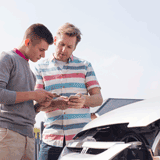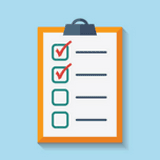News and Updates
10 tips for safe summer grilling
Many Canadians choose to take their cooking outdoors in the summer to make the most of the long days of sunshine. However, it’s important to take precautions when barbecuing to prevent potential fire-related injuries and damage to your home. Before you light up the grill this summer, make sure to review the following grilling safety tips.
1. Keep your barbecue at least three metres from your home
Barbecues must be set up outdoors and in a well-ventilated area. Your barbecue should be placed at least three metres from your home—or other detached structures, such as a shed or a garage. Make sure the area you’ve chosen for your grill is clear of overhangs, decorations, patio furniture and any other flammable items.
2. Ensure your barbecue is secure
To prevent your barbecue from tipping over, set it up on a flat, even surface that is clear of debris. If your grill has locking casters or wheels, make sure they are in the locked position.
3. Inspect your barbecue thoroughly
Take the time to look over your barbecue thoroughly before igniting. This step is especially important if your barbecue has been sitting unused for a long period of time Look for blocked burners, damaged or leaking fittings and hoses, a damaged seal and grease buildup. Cracked or damaged hoses should be replaced immediately, even if they are not currently leaking.
4. Check for gas leaks
To check for potential gas leaks, mix liquid dish soap with water and use a brush or spray bottle to apply the soapy solution to the hose that connects the gas tank to your barbecue. If you see bubbles around the hose or connection points when you turn the gas tank on, turn it off immediately. Inspect the hose again for holes or cracks and tighten the connections. Try the soap test again. If you still notice any bubbles you will need to have your barbecue serviced by an authorized professional before you use it.
5. Be prepared to put out a fire
Keep a spray bottle of water, a container of baking soda and a fire extinguisher within reach. Make sure you know how to use the fire extinguisher and that your fire extinguisher is working so you can act quickly if the flames start to grow out of control. For minor flare-ups, use the spray bottle to keep flames in check. In the event of a grease fire, use the baking soda to douse the flames. Never use water to put out a grease fire.
6. Always open the lid before turning the gas on
Turning on the gas with the barbecue lid closed will cause gas to build up inside the grill. This can result in a serious flare-up when you light the grill and open the lid.
7. Follow the appropriate steps while lighting and shutting off your propane gas barbecue
Follow the below steps to start and turn off your barbecue:
-
Open the lid to your barbecue.
-
Turn on the gas by opening the natural gas valve or propane cylinder valve.
-
Turn one of the burner controls on your barbecue to the appropriate position. Check out these tips for further guidance.
-
Ignite the barbecue using the means recommended by the manufacturer— either by pressing the igniter button or inserting a long match or barbecue lighter into the side burner hole. Be careful not to lean over the barbecue while you are lighting it. Once lit, you can turn on the additional burners
-
If your barbecue does not light right away, turn off the gas and wait for the gas to clear completely before attempting to light the grill again.
-
Regardless of the fuel source, for safety reasons, it’s very important to turn off the supply of gas to the grill when it’s not in use. Do this first.
-
Let the gas remaining in the connecting hose burn off.
-
Close the burner controls
8. Never leave your grill unattended
A fire can develop and begin to grow in size very quickly if you’re not there to stop it. Try to prepare the other components of your meal ahead of time so you can focus your attention on grilling.
9. Avoid grilling too many fatty meats at one time
If too much fat drips on to the flames at one time, it can result in a major flare-up that could quickly spread to nearby objects.
10. Clean your grill regularly
A build-up of grease or oil has the potential to cause a dangerous grease fire if left unchecked. It’s best practice to clean your grill thoroughly after each use.
Accidents happen even to the most experienced grill-masters. Contact your OTIP broker at 1-800-267-6847 to discuss your home insurance options.







